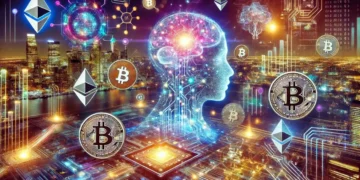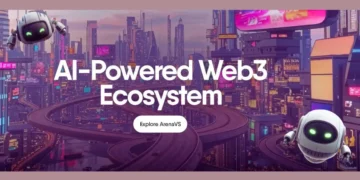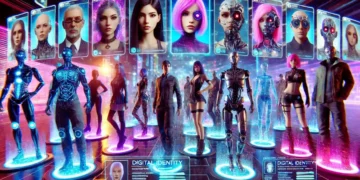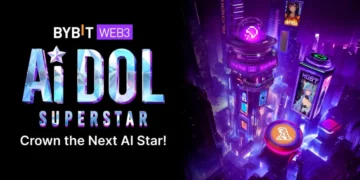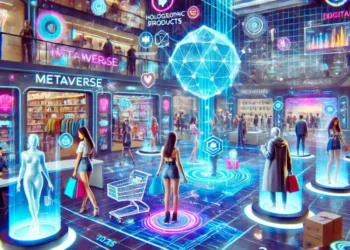The world of non-fungible tokens (NFTs) is in full swing in 2024, and in this comprehensive summary we present the most important events of the week. It’s worth noting that the sector is experiencing ups and downs, influenced by the turbulence in the cryptocurrency market.
NFT Breaking news
Despite the fluctuating trading volume, what remains unstoppable is the adoption of NFTs. On a weekly basis, numerous companies are joining the collectibles sector using blockchain technology.
In this article, we present the most relevant news from the past week in a sector with promising future dimensions. If you’re interested in keeping up with the latest in the NFT space, read on.
NFT collections set the tone in this week’s roundup
A standout highlight in this week’s NFT sector recap is the surge in collections sales. Collectibles sales rose 3.74% last week to an impressive $236.2 million, according to trade media.
This surge in sales bucks the downward trend seen over the past two weeks, which is directly correlated to the broader cryptocurrency market’s performance. Unsurprisingly, the uncategorized bitcoin ordinals led the collections, accumulating a total of $12 million in sales, a remarkable 36% increase from the previous week.
It was closely followed by the Froganas collection on the Solana network, which generated $7.79 million in revenue, representing a robust 22.95% weekly growth. The podium was completed by Dokyo, a collection hosted on the Avalanche network, which reached $7.74 million in sales. This collection’s growth represented a significant jump of 30.39% over the previous week, signifying a significant recovery in the NFT sector and making it the highlight of this recap.
dApps metrics pointing upward
The decentralized applications (dApps) industry kicked off 2024 with a remarkable milestone: 5.3 million Daily Unique Active Wallets (dUAW). This represents an 18% month-over-month increase, demonstrating continued momentum and growing optimism for the upcoming bitcoin halving.
Within the industry, the blockchain gaming sector, which is directly linked to the NFT space, maintained its leading position with 1.5 million dUAW, demonstrating consistency in its performance.
At the same time, the Decentralized Finance (DeFi) space reached a new peak with a total value locked (TVL) of $110 billion, an increase of 7%, with Ethereum consolidating 68% of the TVL.
Approval of bitcoin spot ETF options may take months
In the realm of NFT-related news, a notable highlight is the potential months-long wait for approval of bitcoin spot ETF options. This development has implications for the broader cryptocurrency market and is a critical factor to monitor in the coming months.
See also: Starbucks’ Eco NFT Initiative: A Groundbreaking Triumph in Sustainability
Yuga Labs Triumphs in Ryder Ripps Dispute
In another major development in the NFT sector, Yuga Labs has emerged victorious from a legal battle with Ryder Ripps. The creator of the “Bored Ape Yacht Club” collection won a lawsuit in which a court ordered Ryder Ripps to pay $9 million.
Ryder Ripps had attempted to settle a $100 million lawsuit with Yuga Labs, but negotiations broke down and the case went to trial. As a result, the final decision favored Yuga, leaving Ryder responsible for legal costs ranging from fines to attorneys’ fees.
In conclusion, the NFT sector remains dynamic and constantly evolving, with collections experiencing a resurgence, dApps metrics skyrocketing, and legal battles shaping the industry narrative. Staying on top of these developments is essential for anyone navigating the complicated world of NFTs.
FAQs
1. What are NFTs?
NFTs, or non-fungible tokens, are unique digital assets that represent ownership or proof of authenticity for a specific item or piece of content using blockchain technology. Each NFT is unique and cannot be replicated, making it a one-of-a-kind digital asset.
2. How do NFTs work?
NFTs operate on blockchain networks, typically using Ethereum. The blockchain ensures the uniqueness and ownership of the digital asset by recording transaction details in a transparent and tamper-proof manner. Smart contracts govern the creation, transfer and ownership of NFTs.
3. What can be tokenized as an NFT?
Almost any digital or digitized asset can be tokenized as an NFT. This includes digital art, music, videos, virtual real estate, in-game items, and more. The key is that the asset has value and can be uniquely identified.
4. How are NFTs bought and sold?
NFTs are bought and sold on various online marketplaces that support blockchain transactions. Users need a digital wallet that is compatible with the blockchain that hosts the NFT (typically Ethereum). Transactions are made using cryptocurrency, and ownership is transferred directly through the blockchain.
5. What are NFT collections?
NFT collections are curated sets of digital assets, often following a theme or style. They are gaining popularity in the NFT space as collectors seek to own entire sets. Collections often have unique features or rarities that contribute to their value.
6. Are NFTs just for art?
While NFTs initially gained prominence in the art world, they have expanded far beyond. NFTs now cover a broad spectrum, including game items, virtual real estate, music, videos, and even virtual goods within metaverses. The possibilities continue to expand.
7. What is the future of NFTs?
The future of NFTs is exciting. As technology advances, we can expect increased integration with virtual and augmented reality, enhanced utility in gaming, and broader adoption across industries for provenance and authenticity verification. The NFT landscape is rapidly evolving.
8. How can I store NFTs?
NFTs are stored in digital wallets that are compatible with the blockchain on which they are built. Users can choose from a variety of wallet options, including online wallets, hardware wallets, and software wallets. Security is critical, and private keys must be protected to ensure ownership.
9. What is the role of smart contracts in NFTs?
Smart contracts in NFTs are self-executing contracts where the terms of the agreement are written directly into the code. In the NFT space, smart contracts govern the creation, transfer and ownership of digital assets. They automate processes and ensure transparent and trustworthy transactions.
10. How can I learn more about NFTs?
For in-depth insights and the latest developments in the world of NFTs, stay tuned to reputable sources, industry blogs, and official announcements from NFT marketplaces. Participating in NFT communities and forums is also an excellent way to stay informed and connected.
Follow us on our social networks and keep up to date with everything that happens in the Metaverse!
Twitter Linkedin Facebook Telegram Instagram Google NewsAmazon Store


